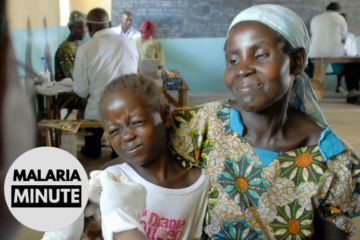The Latest Malaria News, in 60 Seconds.
Use of the tobacco mosaic virus platform to administer malaria antigens induces high and durable efficacy in macaques and individuals with an African-centric genetic variation may have an improved response to malaria.
Malaria Minute on iTunes and Spotify
Transcript:
The use of the tobacco mosaic virus platform to administer the same antigens used in the RTS,S malaria vaccine has shown to induce high and durable efficacy in macaques. While RTS,S confers high levels of protection against P. falciparum, its potency and longevity needs to be improved. In Rhesus macaques, use of the TMV-based vaccine, with 5 NANP repeats from the circumsporozoite protein, resulted in the production of 5x more antibodies than vaccination with full-length circumsporozoite protein. These antibodies were capable of inhibiting parasite invasion for up to 11 months. TMV-based CSP vaccine could potentially provide better immunogenicity and efficacy in humans.
And individuals with an African-centric genetic variation may have an improved response to malaria. Those with the P47S variant are more susceptible to bacterial infections, yet display a weaker inflammatory response to malaria.
Sources:
Image Credits: CDC/ James Gathany [18758]
Scientific Advisor: Katharine Collins, Radboud University Medical Centre


